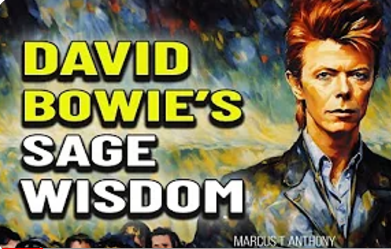Take a look at this picture. What is wrong with it? It was taken at a Starbucks in Guangzhou, a huge, mad, Bladerunnerish city of ten million Chinese people, about two hours out of downtown Hong Kong.
In case you are wondering, the stuff plastered all over the floor is mostly the frothy bit at the top of a grande latte. Some idiot forgot that he is supposed to keep the rim of the mug reasonably parallel to the lay of the floor, or the coffee initiates evacuation procedures. Maybe gravity is God’s cosmic joke. But it’s not as irritating as the fact that the trail of suspicion in the photo above leads directly to the table at which I’m now seated. I wish the line of questioning could unveil the identity of the person who sat here before me. But alas it is 9:00 am. Sunday. On a long weekend. And almost everyone except me is either too asleep or too hungover to make the coffee shop at this time. What is particularly vexing is that the young woman behind the counter is yet to clean up the mess, despite my apologetic confession, which was really just a pathetic attempt to get her to erase the evidence ASAP.
Life can be annoying. Hell, being human can be exasperating. Sometimes things go the way we plan. We land the job we so desperately seek. We kiss the prom queen. The coffee stays in the mug. But often it doesn’t. The coffee spills. The company doesn’t even bother to get back to us. The prom queen slaps you hard and takes out a restraining order.
We like to imagine that we are in control. People obsess about control. They do anything to maintain it. Or at least the illusion of it. Even people who love to think they are “chilled” are often playing a subtle game of control.
In the news this past week there has been a certain story dominating the headlines. It’s a little too soon after the event to make light of it, but let’s just say that never again will the words “German” and “co-pilot” be uttered in the same sentence without a wave of panic forcing its way upwards from the collective human psyche.
The world is unfeasibly large. Not on a cosmic scale, of course. We are just ants in the greater scheme of things. But the planet is pretty big nonetheless. Tragedy is commonplace. About a million people die every year in car crashes. That’s more than a thousand times more than die in plane crashes. But strangely, almost none of these car accidents makes an international-standard newspaper.
When we get into a car the grim stats rarely worry us. Not even if the driver is German. So why the disparity with the relatively rare phenomenon of plane crashes? I suspect it is simply that when we are seated in a plane we surrender all control to the pilot, the mechanics, and to the laws of physics. In a car, we feel safe because we feel we are the master of our fate, at least to a high degree.
In the end, however, deaths in motor vehicles are relatively common. Even worse, death is universal. Even if you refuse to drive or fly, and live on a diet of organic alfalfa sprouts and sleep in an oxygen tank, the Grip Reaper is eventually going to nab you.
Death is that unwelcome stranger who annoyingly disregards all subtle hints of rejection. No restraining order can keep it at any less temporal distance than, say, eighty years or so. On average. German co-pilots notwithstanding.
Religion is often a narcissistic attempt to magically erase the spectre of death through an elaborate and ultimately hopeless negotiation with the Great Terrorist in the sky. Desperately, through prayer, self-flagellation or suicide missions individuals seek that elusive win-win outcome with the creator. After all, why should only God get immortality? Even some unsatisfying compromise like reincarnation will do.
Anything but ultimate annihilation.
Some of you may know about Stuart Wilde. The most popular article I have ever written was about him. Stuart described himself as the scallywag of the new age movement. Or something like that. And it wasn’t mere PR BS. Here was the one man in the business who really walked his talk. Stuart wrote some great books and was loved by many. However, by all accounts he was a womaniser, worshipped the bottle with unrestrained zest, and enjoyed imbibing mind-altering substances extracted from exotic plant species.
And he was an iconoclast. Stuart Wilde loved tearing down sacred objects and stomping on them, often with alcohol-laiden contempt. The man pissed a lot of people off. Some people hated him. Still do. Take a look. It’s all over the net.
My semi-professional opinion as a self-proclaimed spiritual teacher is that his greatest gift lies not only in his teachings. His metaphysics is a mishmash of brilliant insight coupled with intriguing self-delusion and a healthy dose of snake-oil salesmanship.
No. Stuart Wilde’s greatest legacy lies in his insistence that life need not be taken so seriously. To hell with the love ‘n light. I’m here for a good time, not a long time.
Like I said, he was good for his word.
Most people who subscribe to new age thinking and alternative spirituality do so because they have had a gut full of the rigidity and hypocrisy of organised religion. Yet they often unconsciously deliver that same consciousness upon their “liberated” spirituality. And they take it very seriously. After a while they become overly attached to their ideals and metaphysics. This attachment ultimately metamorphoses into unquestionable dogmas. When contradictory beliefs enter their reality, they immediately feel fear. Then anger. Then they attempt to erase or attack the offending idea.
You may have similar thoughts about this article. Especially if you are German.
This is precisely the mentality which has plagued religion for millennia. It leads to violence, either in the physical world, or at the consciousness level, where our projections play out a game of power and control.
It happens with “science”, too. Take a look at organised skepticism.
There is a way out of this, and it’s quite simple. Take your beliefs lightly. Instead of founding your life on ideals and beliefs, make being present to life the foundation of your spirituality. Then, when you work at the level of mind – socialising with others, creating, working – you can play with your beliefs. You might even like to experiment with them. Like throwing on an Hawaiian shirt, leather pants or a bowler hat at the local op shop. It just might be interesting.
Just don’t believe in your beliefs. Not too much, anyway.
Physicist Neils Bohr once said that the opposite of a profound truth may not be an untruth, but another profound truth.
Complementarity is intolerable to the mind and world of belief. But there is a deeper level within us where paradox can be seen and understood. Paradox is not so much a violation of universal law as a contradiction to the machinations of the human mind.
When we encounter a differing perspective, it pays to step out of annihilation mode and listen. There just might be something profound we can learn.
There is a price to pay for releasing beliefs. No longer will you be able to live in a world of perfect certainties. Indeed, not knowing will inform much of your experience. But that naivety restores the playful innocence of the child. It renews the world. A world that you thought you knew, but did not.
Of course, like a plane hurtling earthward at terminal velocity, the initial journey is terrifying, and the overriding resonance is the panic of impending and ultimate annihilation. Well, at least this is what it has been like for me. And there is still part of me that feels this way. I like to call it the “mind.”
Life is uncertain. We don’t know what today will bring, let alone tomorrow. No ceremony, ritual or incantation can lock down the future.
Hey, I’m not saying that the mental level – the human consciousness field and its intentionality – has no bearing upon the unfolding of experience. Nor am I saying beliefs don’t matter. They do.
Yes, intentionality is important, as I’ve outlined pretty clearly in books like Discover Your Soul Template. But I would be lying if I said I believe I can control everything, or even most things. And just as well I can’t, or Adam Sandler would never get another acting gig and no beautiful woman would be safe. But that’s just me.
In the end, we should travel this mysterious journey lightly. Spirituality that is taken very seriously is not actually spirituality. It’s the delusion of control disguised as spirituality. The balancing act lies in befriending and loving the dark and destructive parts of ourselves that tend to become lost in murky shadow. That way our inner German co-pilot stays within our awareness. It becomes liberated from the darkness and moves into the light. We can lighten up and stop being afraid of ourselves. We can stop pretending that only other people experience darkness.
Most of all, we can laugh often and loud, especially about ourselves.
Relax, let go, and have a great time of it today. Let yourself be human for once. You were not put here to be perfect. What attitude could possibly be more restorative?
So stop being so busy. Don’t try so hard. Enjoy a cup of coffee. But mind the gravity. It can be embarrassing.
Cheers,
Marcus







